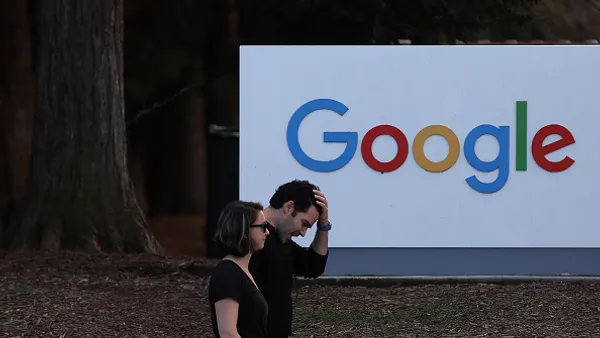Dive Brief:
- The Trade Desk reported revenue of $219.8 million in Q1 2021, a 37% year-over-year increase, per a news release. The company also saw customer retention remain over 95% and expanded its brand and agency partnerships during the quarter.
- Connected TV (CTV) continues to be a major driver of The Trade Desk's growth, with spend in the channel more than doubling in the quarter compared to a year ago, founder and CEO Jeff Green said on an earnings call. Green also detailed developments with Unified ID 2.0 (UID 2.0), the cookie alternative the company developed, noting that the list of publishers, advertisers and data partners is larger than publicly announced.
- Despite beating earnings estimates of $217 million, The Trade Desk stock was down nearly 26% at market close on Monday as investors are increasingly concerned about the prospects of UID 2.0 and the company's future potential for growth.
Dive Insight:
The Trade Desk saw yet another quarter of revenue growth amid the continued surge in CTV that has accelerated due to the coronavirus pandemic. Overall CTV ad revenue is predicted to exceed $120 billion by 2024, per Omdia research cited on the earnings call. The demand-side platform provider seeks to be a central part of this growing market with innovations and partnerships that help advertisers make data-driven decisions in the channel, Green explained.
Green also detailed the development of UID 2.0, which The Trade Desk developed before handing off earlier this year to Prebid.org, a nonprofit that will oversee its technical infrastructure. In talking up UID 2.0's prospects, Green noted that the tech — which is just a few weeks into beta testing — has a list of publishers, advertisers and data partners that is longer than what has been announced previously. He also pushed back against the efficacy of third-party cookie alternatives like the ones being developed by Google.
"We're skeptical about solutions that lean on opaque cohorts or solutions that try to make decisions for consumers instead of providing consumer choice. We do not believe those options are sustainable as privacy conscious in the long term. They don't empower consumers sufficiently," Green said on the call.
The CEO also detailed a new UID 2.0 development called Double Encryption for Publishers (DEP) that helps publishers encrypt and unencrypt UID 2.0 in tandem with a specific advertiser or partner. DEP seeks to help publishers integrate their own single sign-on (SSO) IDs into the broader privacy ecosystem and prevent against data leakage.
However, despite beating earning estimates and painting a rosy picture of the future of CTV and UID 2.0, shares of the company were down nearly 26% by market close on Monday. Ad platform peers Magnite and Criteo were also down, 13% and 5%, respectively, as reported by The Motley Fool.
Some investors might have been expecting a bigger earnings beat in light of the huge growth seen by The Trade Desk's major competitors in the CTV space, YouTube and Roku, per Citi analysts cited by CNBC. YouTube, which saw ad revenue jump 49% in the quarter, also experienced major gains in CTV and made the channel a key part of its NewFronts presentation. For its part, Roku posted a 73% growth in year-over-year revenue in the last quarter — another figure that outpaces The Trade Desk's more modest growth rate.
In addition, despite the growing list of partners for UID 2.0 and its roll-out of DEP, some investors could be worried about the broader adoption of the cookie alternative amid lower-than-expected opt-in rates for Apple's Identifier for Advertisers and other third-party solutions, Rosenblatt analyst Mark Zgutowicz told Ad Age. Widespread adoption of UID 2.0 is central to The Trade Desk playing a larger part in the digital advertising world dominated by Google and Facebook. Still, Green remained bullish about the company's offerings.
"There are some companies, mostly those with a dominant walled garden approach that believe the Internet can be controlled by a few. Then there's the rest of us who believe that an open competitive Internet marketplace is the only real viable approach that preserves value and opportunity for all participants," he said on the earnings call.














